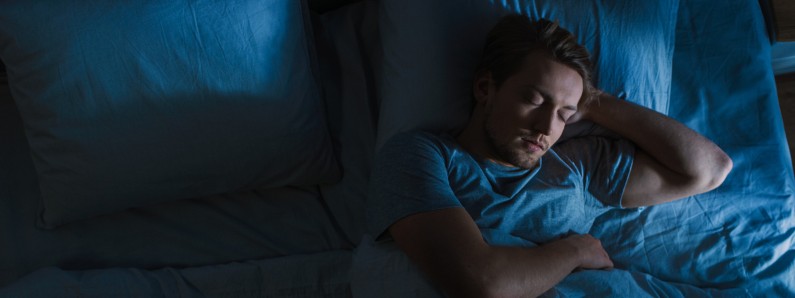
We're Sleep Talking
Published: 25 November 2024
By: Chris Scott, Registered Psychologist
Our sleep plays a vital role in our physical, mental, and emotional wellbeing. Numerous studies have shown that sleep supports our natural immune systems, helping us fight illness and disease. It also supports our everyday emotional processing and promotes healthier choices, behaviours, brain function, memory, and learning.
Most adults intuitively recognise the value of a regular sleep routine. We rely on various habits, such as setting our alarm or winding down before bed and doing our best to feel relaxed and comfortable. There are lots of tips out there to help you get to sleep.
Better Sleep = Better Workplace
Regarding the workplace, better sleep has been shown to be particularly important for health, safety and productivity. Better sleep really is better safety. Sleep-deprived workers are shown to be at a higher risk for accidents, injuries, and errors. In fact, a study by the National Institute for Occupational Safety and Health found that workers who sleep less than 6 hours per night are more likely to experience work-related injuries than those who sleep 7-9 hours. Office workers who sit at a desk all day can also benefit from better sleep. A study by the Journal of Occupational and Environmental Medicine found that office workers with adequate sleep had faster reaction times and made fewer errors than those who were sleep deprived.
So, how can we get better sleep?
There are three features to balance for our sleep:
- As human primates, our bodies and minds are designed to function optimally through natural cycles of activity, rest, and recovery, aligned with daylight and darkness. Each day, exposure to natural light is essential, while darkness is crucial to help regulate our internal body clock.
- Our body and brain also respond to what is called sleep pressure, essentially, the longer we stay awake, the more this sleep pressure builds. In other words, after 16 hours of being awake, we will feel naturally sleepy. We need to work with this natural system and avoid stimulants, behaviours or habits that interfere with this natural system.
- The third factor, and arguably the most important to get right, is how we manage any stress and anxiety in our lives. In our brain, we have a set of structures that can be likened to an internal smoke detector. Once activated, it can be almost impossible to ignore this internal alert system and reliably switch off and stay asleep.
How can I prioritise the sleep of my employees?
Employers who want to prioritise the wellbeing of their employees would be wise to recognise the value of providing a working environment that understands and addresses the three factors identified above and provide encouragement and tangible support for better sleep patterns.
This is particularly important for those organisations that rely on night shift workers as these shift patterns are almost uniquely designed to work against the natural balance described above.
For example, change can begin small. Employers can consult their workforce on easy-to-fix, lower-cost environmental changes or scheduling shifts that allow for adequate sleep and recovery time. It’s also easy to provide resources and access to trained specialists for employees to manage their sleep health better.
Sleeping Made Easy
At the individual level, we can all take steps to prioritise our own sleep health. I am often asked what would be my 3 big things for getting a better night's sleep.:
- Work with your body and brain, not against it.
- The body responds to consistency, so set a routine and try to stick to it 7 days a week.
- Try not to overthink your sleep. Be accepting, mindful and kind to yourself.
Ultimately, the benefits of sleep extend far beyond just feeling more alert and well-rested. In Aotearoa, honouring our indigenous Māori culture, the whakatauki says, "Moe te moemoeā o te tangata, kia mārama ai te whakaaro" - "Let the person sleep so that their thoughts may become clear."

